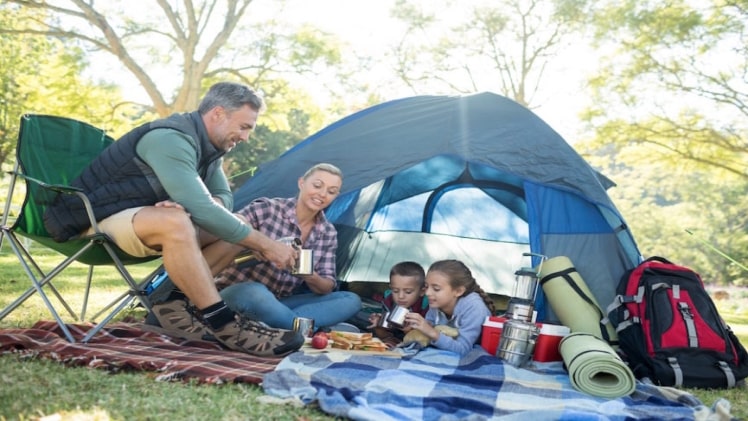Your kid’s first summer camp experience is a major milestone, marking a significant point in their development. And it’s a major moment for you as a parent, one that you may or may not be ready for. Sure, the idea of summer camp and all of its learning opportunities, fun activities, and lifelong friendships sounds fantastic. But when it’s getting close to the registration cutoff, have you done your due diligence?
Summer camp can be a symbol of maturity. And in certain social circles, neighborhoods, and communities, it’s a rite of passage. If your kids’ peers attend a certain summer camp, it can be hard not to succumb to groupthink. Launch your research and assessment initiative now so you can make the right call for your kid and your own comfort level.
Assess the Camp’s Safety Measures and Policies
Safety is issue No. 1 on any day, and when it comes to summer camp, it’s paramount. Especially with overnight camp, you’re shifting supervisory responsibility to the camp and its counselors. While some camps have sterling reputations and rigorous training programs, those standards are not a given. Cuts, concussions, and sun exposure are among the most frequent accidents campers experience, but they aren’t the only things to guard against.
Ask about the camp’s safety measures, policies, and training practices to understand their process. Pay special attention to camper-to-counselor ratios, water access and supervision, and the physical security of the camp. Inquire into communication protocols and whether campers can bring a phone for kids into their bunk or on hikes. Make a list of safety questions to compare against camp-provided materials and reach out directly to fill in the gaps. Look for camp accreditation records, state-issued inspection results, and other third-party assessments to round out your research.
Be Honest About How Your Kid Responds to Authority
Most kids don’t love to listen, especially when it’s an adult telling them “no.” When your child is away at camp, they’ll be left to their own devices without your watchful eye. Are you confident they’ll heed the direction provided by their counselors? If your initial feeling is one of hesitation, that’s worth noting.
Review your child’s recent reports from school, paying special attention to notes from their teachers. If they’ve got a track record of not listening, now’s the time for a crash course or a pivot.
Coach your child to help them get to a place where camp is a possibility. Have a conversation about the camp’s leadership structure and how those individuals will be in charge when your child’s on-site. Monitor their habits leading up to camp and reinforce positive behavior to point them in the right direction.
Consider Your Kid’s Sleepover Success Rate
Some kids can’t wait to go on a sleepover with their best friends. Others love the idea but are a nervous wreck when it’s time to say goodbye. Still, others do well with a grandparent but call for a pick-up from a friend’s place. Take an honest look at your kid’s sleepover frequency and success rate with various groupings.
If they haven’t had a sleepover at all, a sleepaway camp is not the best place to start. Summer may be months away, so start the sleepover intensive training now. Create a plan with your child’s input so they understand the goal and what it will take to reach it.
Begin by having your child invite a good friend to spend the night at your home. If that goes well, they can try sleeping over at the friend’s house when that child (hopefully) reciprocates your kid’s invitation. At that point, they might graduate to a full-blown slumber party.
Log your child’s sleepover experiences, adjusting the plan as needed based on their progress. Together, you’ll build up their sleepover confidence and independence before the camp countdown begins.
Compare Camp Themes and Your Kid’s Interest Level
You have the best memories of attending nature camp when you were a kid. But your own flesh and blood would rather memorize lines and perform a one-act before lacing up a hiking boot. Consider your kid’s passions and strive to find a camp that will keep them engaged for its duration. Get their feedback on possible camps and encourage them to review the agenda, sharing their feelings along the way.
Summer camp is an additional expense that’s not to be taken lightly. You work hard to afford a camp experience for your child, so make sure it’s a good one. While you shouldn’t expect a space camp to lead to a NASA career, aim for more than a fleeting interest.
Review both general interest and themed camps to find the best fit for your camper’s first time. Narrow down choices by comparing amenities, dining, and other individual preferences, especially if your child has dietary or accessibility issues.
Simulate the Camp Experience Before You Hit “Register”
A kid’s first sleepaway camp is a big deal. Set your child up for success the best you can by doing a few trial runs. In addition to their sleepover training, have them pack as if for camp, following the same criteria their camp of choice specifies.
Living out of their packed suitcase for a few days will prepare them to get by with its contents — or reveal what’s missing. Work to build confidence through this exercise, and your child will wave goodbye to you knowing they’re ready for what’s ahead.
The only question then will be, are you ready to be a camp parent? The emotional hit from this milestone will be great, so be ready for that lingering hug at drop-off. But since you’ve prepared them for this moment, you can drive away confident they’re in for their best summer yet.

